Lady Tagged Selfish By Roommate's Ex-Boyfriend For Refusing To Pay Him For Dog He Abandoned
It's very easy to fall in love with a dog. In fact, it can be incredibly enjoyable to have a canine companion in your home.
Dogs are, without a doubt, capable of offering unwavering loyalty and acceptance, as well as constant companionship and stress relief after a demanding or stressful day. However, deciding to get a dog is a choice that should not be made hastily.
Raising dogs requires a significant investment of money, time, and effort. Although it can be tremendously fulfilling, dog ownership also comes with numerous responsibilities.
It can be a grave mistake to acquire a dog simply because it's "the thing to do" or because your children have been pleading for a puppy. Remember that you may need to care for your new family member for up to 15 years.
In today's story, we encounter a situation where a guy got a dog simply because he wanted it to be a "frat dog." This guy is the OP's roommate's boyfriend.
It was clear from the beginning that he had no idea what he was getting into. After just two days, the not even month-old puppy became too much of a responsibility for him, and circumstances forced the OP to take over.
Now, he wants the OP to pay him to cover "his share" of the dog's expenses during the time he had it, but that's not happening.
The OP writes
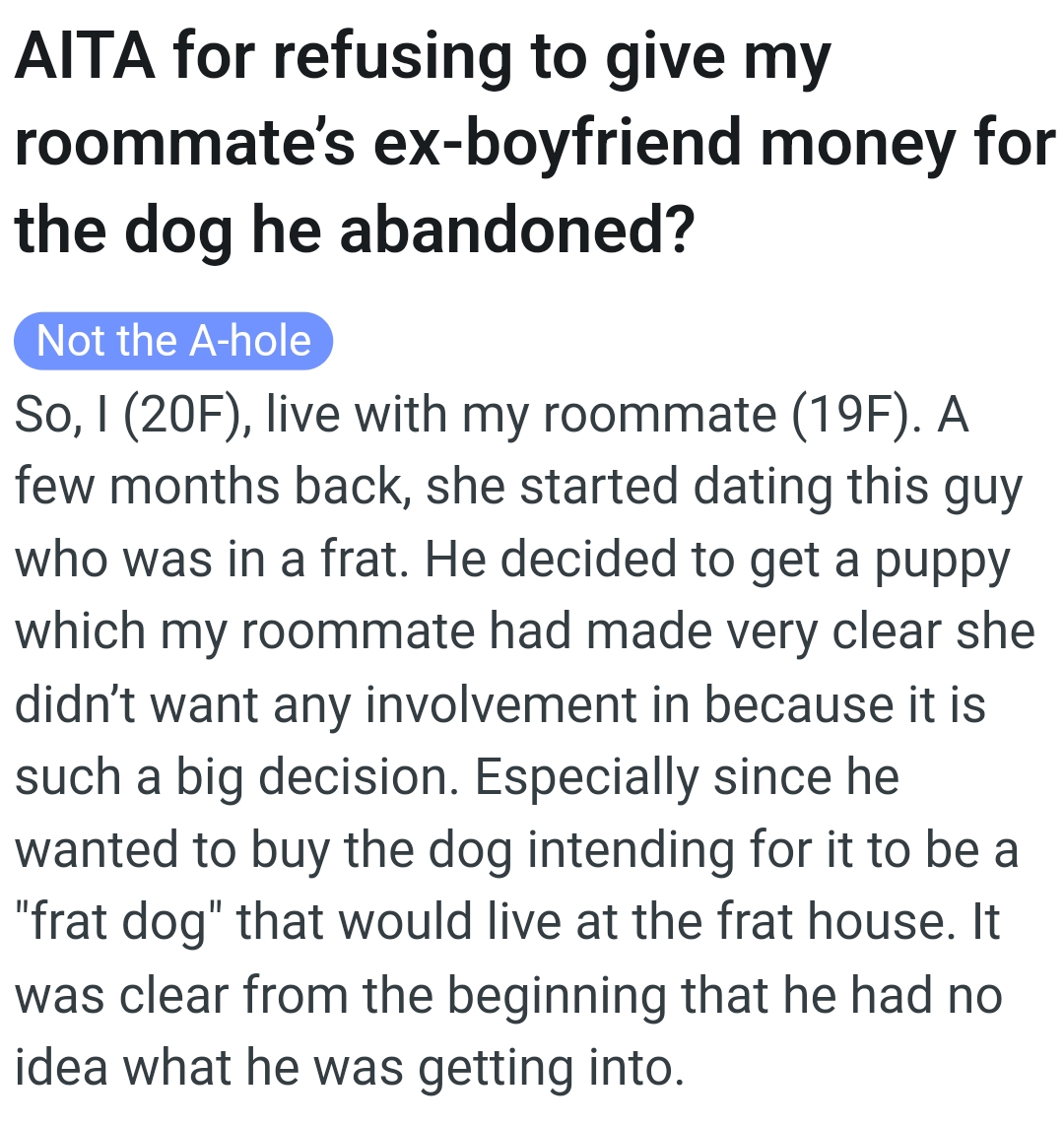
It became the OP's responsibility
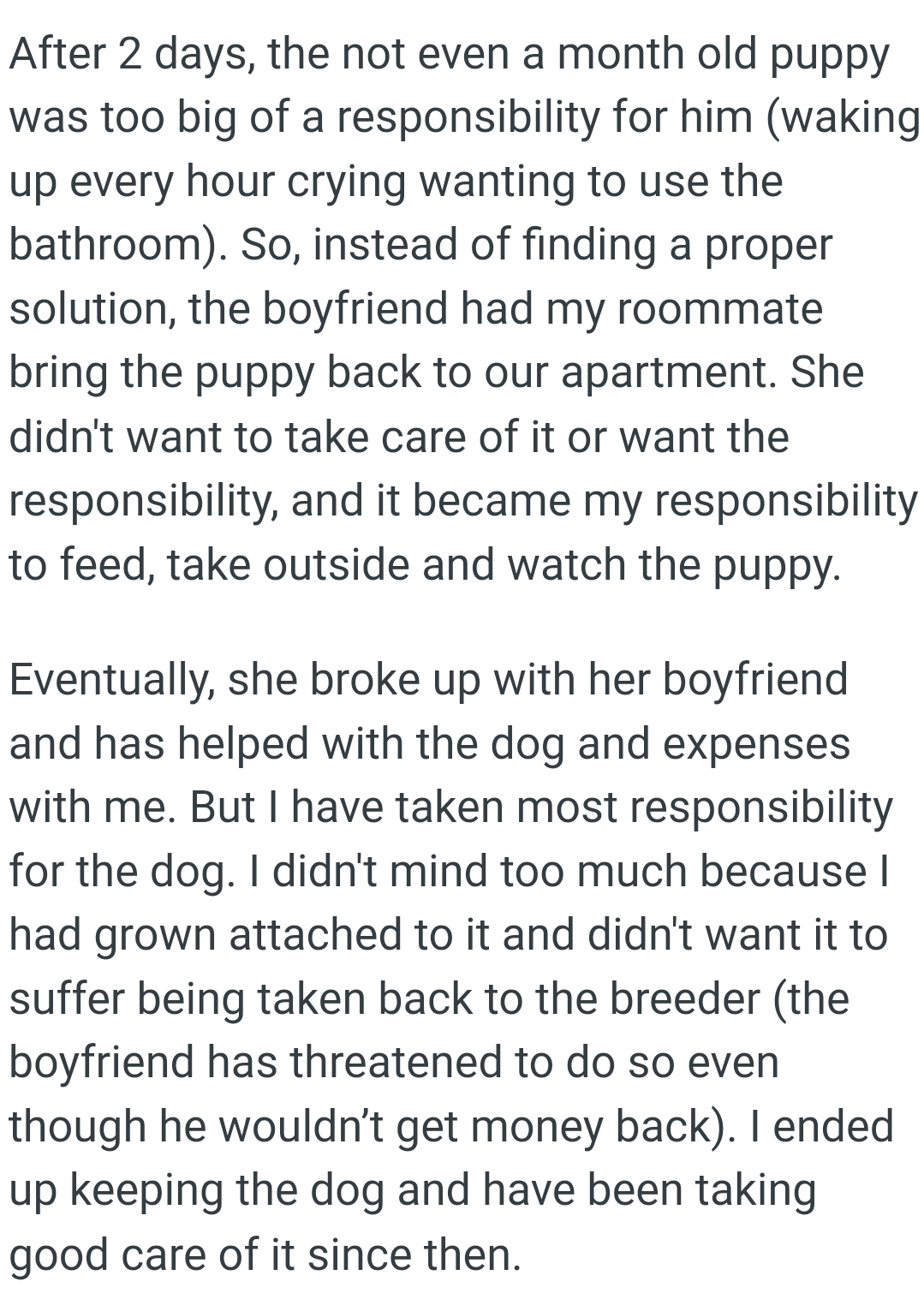
Understanding Responsibility in Shared Living
Shared living arrangements often bring forth issues of responsibility and accountability. Dr. Brené Brown, an expert on vulnerability and shame, suggests that understanding our obligations to one another is crucial in maintaining healthy relationships.
Her research highlights that when individuals feel they are being unfairly burdened, resentment can build, leading to conflicts.
In this case, the roommate feels abandoned by the ex-boyfriend's actions, which can lead to feelings of unfairness and anger.
He abandoned the dog
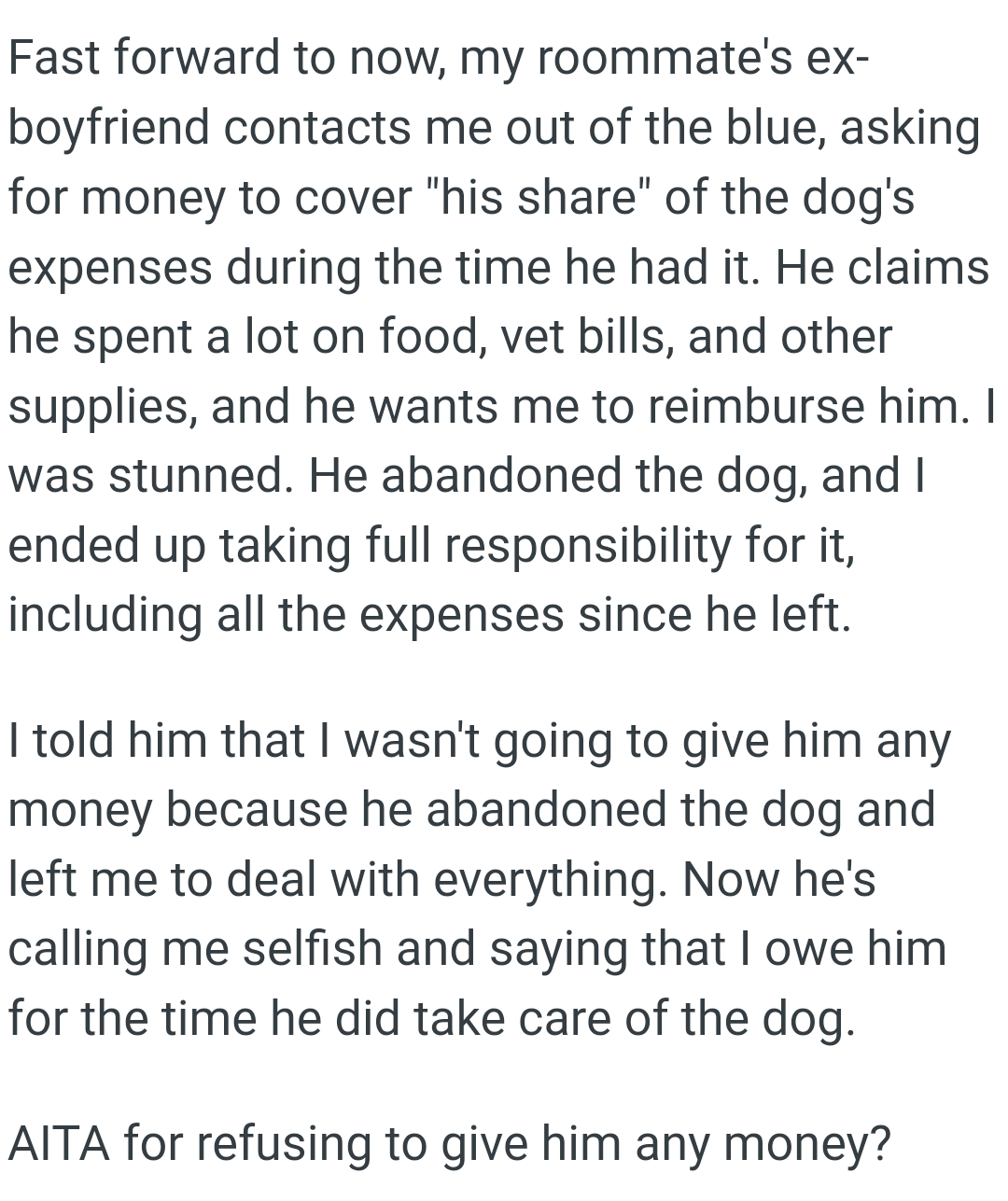
And the comments roll in...
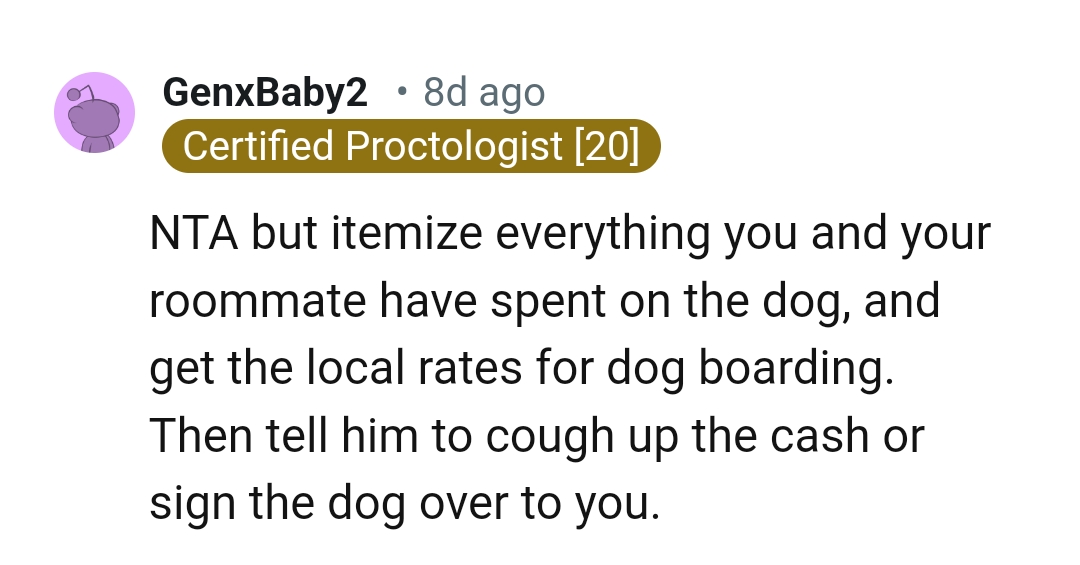
OP has offered the following explanation for why they think they might be the AH:
Not paying the ex-boyfriend for the dog that he spent a total of $2,500 on. 2) Because he did spend money on the dog and provided food, toys, and a bed for the first few days he had him, including vaccinations.
A short story

Proof of ownership
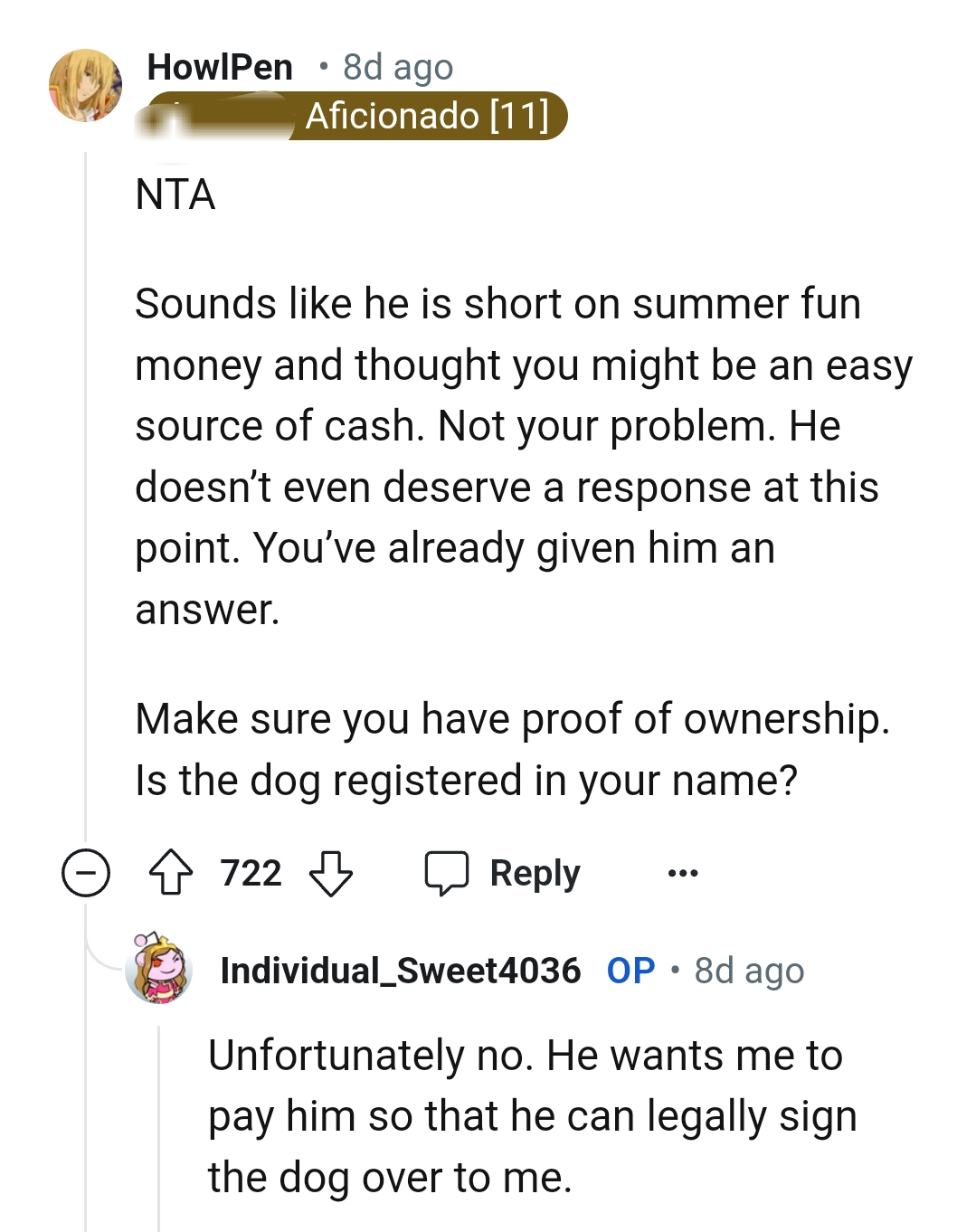
Behavioral psychologists emphasize that clear communication about responsibilities is essential in shared living situations. Dr. Angela Duckworth, a renowned psychologist and author, states, "When expectations are clearly articulated, individuals are more likely to hold each other accountable without conflict." Research supports this notion, indicating that establishing shared agreements can significantly reduce misunderstandings and foster cooperation. According to Dr. Duckworth's insights on her professional website, clear communication is a cornerstone of effective collaboration.
He's irresponsibly selfish

Giving him the actual bill

The OP left more details in the comments
The guy also had the audacity to threaten that if I didn’t pay him for the dog, he was going to let one of his friends buy the dog off him for $600.
This is after the dog has been with me and my roommate for six months now. So the guy says I need to pay him in order for him to sign ownership over to me, or the dog isn’t mine.
I just need to book his appointment to be neutered and microchipped. Thanks for all of the responses suggesting I do that!!!
The only reason I don’t want to pay him back is that his parents are very well off, and I have rent, groceries, and now the dog to take care of financially.
I’m a college student and work part-time as much as I can to make rent, so him demanding money from me just for his “summer fun and frat partying” seems incredibly unfair to me.
The breeder should be reported.
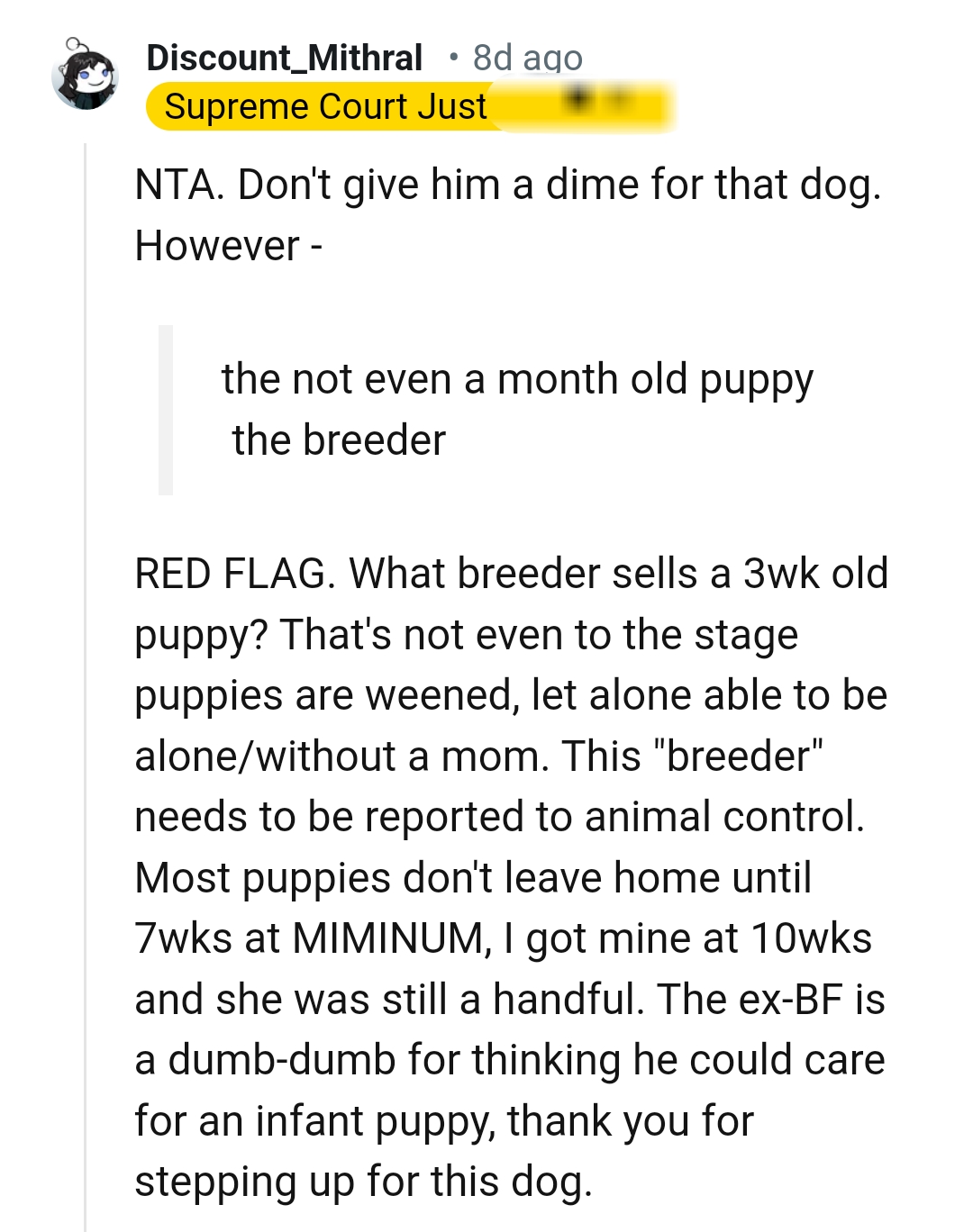
Blocking his number

The Role of Empathy in Resolving Conflicts
Empathy plays a significant role in resolving disputes in shared spaces. Dr. Daniel Goleman, an emotional intelligence expert, notes that practicing empathy can help individuals understand one another's perspectives and feelings.
Research shows that when individuals take the time to empathize, they can often find common ground, leading to more amicable resolutions.
In this scenario, understanding the emotional impact of the dog's abandonment could help both parties navigate their feelings and responsibilities more effectively.
A lifetime commitment
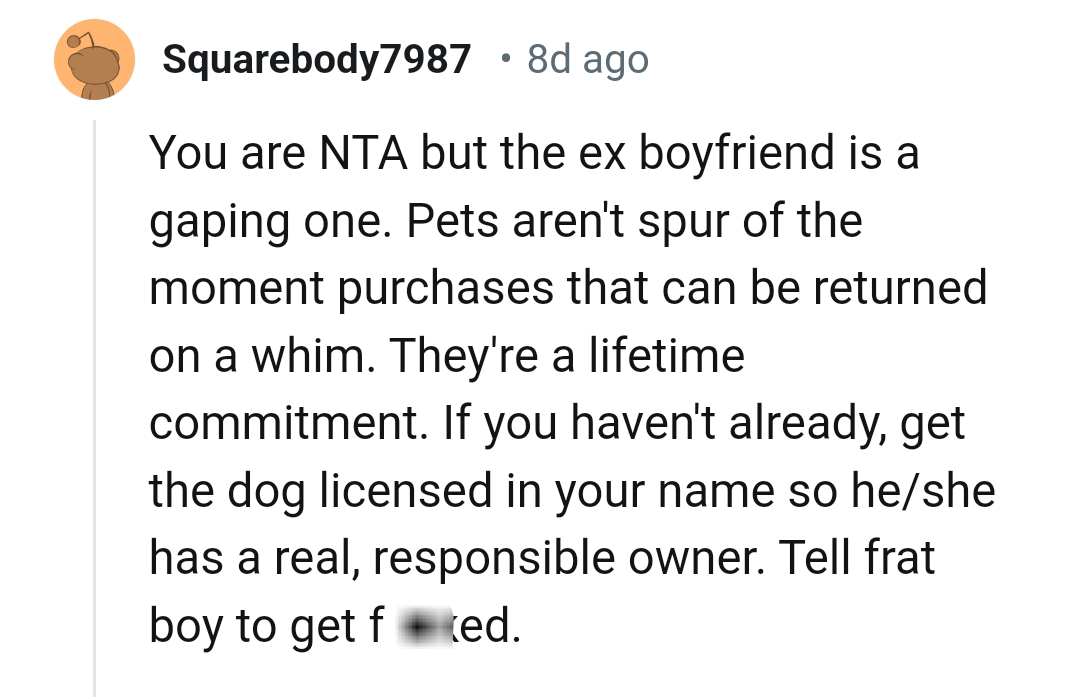
Psychological Analysis
This situation reflects common challenges in shared living, where feelings of unfairness can lead to conflict. It's crucial for roommates to communicate openly about their responsibilities to prevent misunderstandings and foster a collaborative living environment.
Analysis generated by AI
Analysis & Alternative Approaches
Understanding the dynamics of responsibility in shared living arrangements is vital for maintaining harmony. Research consistently shows that clear communication and empathy are key to resolving conflicts and fostering cooperation.
By creating an environment of accountability and mutual respect, roommates can enhance their living experience and navigate challenges more effectively.
You see, dogs need a lot of attention, including feeding, playing, and interacting with others. Many dogs end up in shelters because their owners don't have the time to train and care for them.
The OP took up that mantle, and Redditors were solidly behind her. So, if she has taken the dog to the vet and established care in her name, the dog is hers.
To address conflicts stemming from shared responsibilities, it’s essential to engage in open communication about feelings and expectations. Studies indicate that regular check-ins can help roommates discuss their needs and concerns proactively, preventing resentment from building.
Creating a system for shared responsibilities, like a chore chart or accountability meetings, can also enhance cooperation and minimize disputes.
Creating a Culture of Accountability
Establishing a culture of accountability in shared living spaces can foster a sense of ownership and mutual respect. Research suggests that when individuals feel equally responsible for their environment, they are more likely to maintain it collaboratively.
Encouraging roommates to express their thoughts on shared responsibilities can enhance understanding and reinforce positive behaviors.
Such practices can ultimately lead to a more harmonious living situation, where everyone feels valued and respected.



